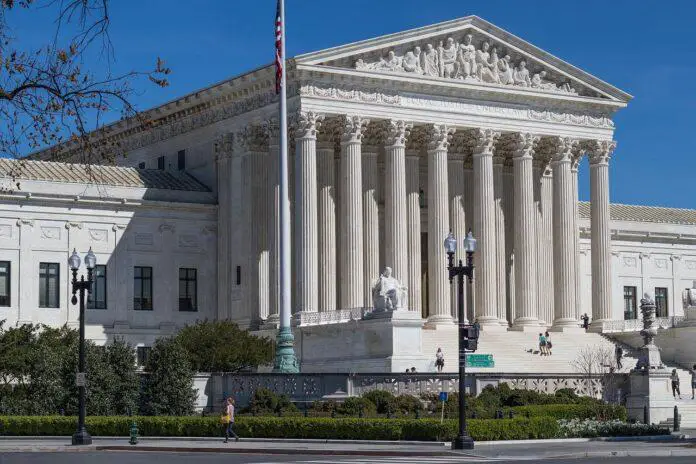The separation of church and state has been the established legal structure since the 20th century. There is a law in place which prohibits public schools from forcing students to participate in religious exercises that they don’t want to participate in. The Constitution prohibits the government from promoting or discouraging a particular religious view.
The Christian religious right has been fighting to put prayer back in the schools since the Supreme Court barred it in its ruling in 1962. The Christian religious right has backed the nominations of all the Supreme Court’s conservative justices.
After decades of precedent, the issue is brought up again in a case facing the Supreme Court, involving a football coach who prayed with students on the football field after games.
The facts in the case – Kennedy v. Bremerton School District – are in dispute. The coach, Joe Kennedy, worked at a public school in Washington State. He frequently used prayer and religious motivational speech with his players, on school grounds, including silent religious prayer after games.
After a complaint by an opposing team, the school approached Kennedy and encouraged him to make his comments more secular and less religious, or to not blatantly organize prayer gatherings on school grounds, such as the football field. One parent complained to the school that his son felt obligated to participate, due to fear that he wouldn’t get to play as much if he didn’t cooperate.
Although he initially complied, Kennedy assumed more of an activist’s position on the matter, and hired a right-wing legal nonprofit organization to represent him and even went on a nationwide media tour, including an appearance on Good Morning, America, claiming religious persecution.
Right wing media subsequently rallied to support him, and after a post-game prayer on the field, a crowd of supporters rushed onto the field in what a federal appeals court described as a stampede. Witnesses said that some of the members of the school marching band were knocked down. The school district put Kennedy on leave from his coaching responsibilities, saying that his activities presented a danger to students. Kennedy said his right to religious expression was denied, and he filed a lawsuit against the school district.
There were disagreements between Kennedy’s lawyer and the school district’s representation about the activities that led to the lawsuit. A major question was whether the coach was acting in his role as coach when he was organizing prayers after a game on school grounds. Kennedy’s lawyer said he was not, stating that the players had the choice to stay and participate or leave. The court’s liberal justices noted that Kennedy’s responsibilities as coach continued even after the game ended. Other issues were debated, attempting to define Kennedy’s actions, the implications of his actions, and the legalities. The justices discussed hypothetical situations, in order to provide perspective and come up with a decision.
One precedent, a case from 1992, Lee v. Weisman, determined that religious activity on school grounds is coercive because students feel the pressure from school officials as well as peer pressure. A student could feel that the government is forcing him or her to comply with an activity that goes against his or her conscience.
What is clear is that the conservative judges are leaning toward siding with Kennedy. They appear to have a majority with Justice Amy Coney Barrett now on the court.
What is clear is that the conservative judges are leaning toward siding with Kennedy. They appear to have a majority with Justice Amy Coney Barrett now on the court.

